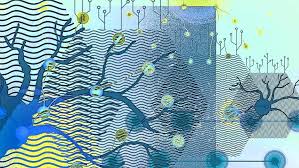Source: analyticsinsight.net
Artificial Intelligence has progressed immensely in the past few years. From being just a fiction context to penetrating into the regular lives of people, AI has brought transformation in several ways. Such advancements are an output of various factors that include the application of new statistical approaches and enhanced computing powers. However, according to 2017 report by DeepMind, a Perspective in the journal Neuron, argues that people often discount the contribution and use of ideas from experimental and theoretical neuroscience.
The DeepMind report’s researchers believe that drawing inspiration from neuroscience in AI research is important for two reasons. First, neuroscience can help validate AI techniques that already exist. They said, “Put simply if we discover one of our artificial algorithms mimics a function within the brain, it suggests our approach may be on the right track.” Second, neuroscience can provide a rich source of inspiration for new types of algorithms and architectures to employ when building artificial brains. Traditional approaches to AI have historically been dominated by logic-based methods and theoretical mathematical models.
Moreover, in a recent blog post, DeepMind suggests that the human brain and AI learning methods are closely linked when it comes to learning through reward.
Computer scientists have developed algorithms for reinforcement learning in artificial systems. These algorithms enable AI systems to learn complex strategies without external instruction, guided instead by reward predictions.
As noted by the post, a recent development in computer science – which yields significant improvements in performance on reinforcement learning problems – may provide a deep, parsimonious explanation for several previously unexplained features of reward learning in the brain, and opens up new avenues of research into the brain’s dopamine system, with potential implications for learning and motivation disorders.
DeepMind found that dopamine neurons in the brain were each tuned to different levels of pessimism or optimism. If they were a choir, they wouldn’t all be singing the same note, but harmonizing – each with a consistent vocal register, like bass and soprano singers. In artificial reinforcement learning systems, this diverse tuning creates a richer training signal that greatly speeds learning in neural networks, and researchers speculate that the brain might use it for the same reason.
The existence of distributional reinforcement learning in the brain has interesting implications both for AI and neuroscience. Firstly, this discovery validates distributional reinforcement learning – it gives researchers increased confidence that AI research is on the right track since this algorithm is already being used in the most intelligent entity they are aware of: the brain.
Therefore, a shared framework for intelligence in context to artificial intelligence and neuroscience will allow scientists to build smarter machines, and enable them to understand humankind better. This collaborative drive to propel both could possibly expand human cognitive capabilities while bridging the gap between humans and machines.


